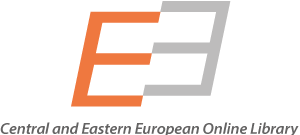(2013), No 1, Issue 1
Context, strategies and negotiation methods in the European Union Enlargement to Central and Eastern Europe
Mihai ALEXANDRESCU
Pages: 7-21
Full text 
Abstract
After almost a decade since the enlargement of the European Union to Central and Eastern Europe, history can be read with the clarity that time offers. !e context, strategies and negotiation methods of 1997-2004 can be analysed more carefully now, because the consequences of those negotiations are felt even today. Covering under the mask of enlargement, we notice the fear of the westerners towards the new Member States which brought in a different history and risked disturbing a system that has been painfully set up since the 1950s. But at the same time, we notice the desire for moral revenge of the candidate countries towards the old EU members. In this study, I analyse the merit of Günter Verheugen, the technocrat who found the right language and strategy to reconcile these two perspectives and who adapted to the present interests of the two parties.
Keywords:
enlargement, European Union, Günter Verheugen, negotiations, Central and Eastern Europe
References:
Abélès, M. (1996), “Le complexe de Bruxelles” in Henri- Pierre Jeudy (coord.), Tout négocier. Manques et vertige des compromis, Paris : Autrement .
Avery, G. (1995), “The Commission’s Perspective on the Negotiations”, SEI Working Paper No. 12, Brighton: Sussex European Institut.
Badie, B. (1996), “Le maintien de l’ordre international”, in Henri- Pierre Jeudy (coord.) Tout négocier. Manques et vertige des compromis, Paris: Autrement,
Brussis, M. and Emmanouilidis, J. (2000), Negotiating EU Accession: Policy Approaches of Advanced Candidate Countries from Central and Eastern Europe, Centre for Applied Policy Research, July.
Cannes (1995) European Council, Presidency Conclusions, 26-27 June 1995.
Copenhagen (1993) European Council, Presidency Conclusions, 22 June 1993.
Daillier, P., Pellet, A. (1999), “Cadre juridique des relations internationales”, in Nguyen Quoc Dinh (coord.) Droit international public, 6e édition, Paris: L.G.D.J.
Engel-Di Mauro S. (2001), “The enduring national state: NATO-EU relations, EU-enlargement and the reapportionment of the Balkans”, in Jozsef Borocz and Melinda Kovacs (eds.), Empire’s New Clothes. Unveiling EU Enlargement. Central Europe Review, pp. 111-195.
European Commission Delegation Washington (1999), “Commission sets out ambitious accession strategy and proposes to open accession negotiations with six more candidate countries”, in Office of Press and Public Affairs, October 13, 1999, No 64/99, Washington.
Europolitics (1999), EU Enlargement: Commission reorganises on eve of Regular Reports, Wednesday, 22 September,
Grabbe, H. (1999), A Partnership for Accession? The Implications of EU Conditionality for the Central and East European Applicants, Robert Schuman Centre Working Paper 12/99.
Grabbe, H. (2001), Profiting from EU enlargement, Centre for European Reform, May, London.
Grzegorz, E., (2008), “Dilemmas of Europeanization: Eastern and Central Europe after the EU Enlargement”, in Acta Slavica Iaponica, Tomus 25, pp. 1-28.
Helsinki (1999) European Council, Presidency Conclusions, 10-11 December 1999.
Institut für Europäische Politik (1999), Enlargement/Agenda 2000 – Watch, No. 2/1999
Isaac, G. (2000), Droit communautaire général, 7e édition, Paris.
Jacqué, J.-P. (2001), Droit institutionnel de l’Union Européenne, Paris: Ed. Dalloz.
Jeudy, H.P. (1996), (coord.) Tout négocier. Masques et vertiges des compromis, Paris : Autrement.
Luxembourg (1997) European Council, Presidency Conclusions, 12-13 December 1997.
Madrid (1995) European Council, Presidency Conclusions, 15-16 December 1995.
Moravcsik, A. and Vachudova, M.A. (2003), “National Interests, State Power, and EU Enlargement,” in East European Politics and Societies 17:1, pp. 42.
Nicolaides, P. (1999), “Enlargement of the EU and Effective Implementation of Community Rules: An integration-based Approach”, Working Paper 99/W/04, European Institute of Public Administration, Maastricht, 3 December 1999, pp. 25-26.
Verheugen, G. (10 March 2004) European Parliament Plenary Session – Monitoring Reports and Regular Reports RO, BU, Strasbourg.
Verheugen, G. (11 April 2002), “European integration is not about changing the past but about shaping the future”, Charles University, Faculty of Social Sciences, Prague.
Verheugen, G. (12 June 2002), Enlargement debate, Speech for the European Parliament, Strasbourg.
Verheugen, G. (1999), “Germany and the EU Council Presidency. Expectations and reality”, Discussion Paper, C 35, Zentrum für Europäische Integrationsforschung Center for European Integration Studies Rheinische Friedrich WilhelmsUniversität Bonn.
Verheugen, G. (1999), Speech by Günter Verheugen, Member of the European Commission “Enlargement: Speed and Quality”, at the conference “The Second Decade towards a New and Integrated Europe”, Den Haag, SPEECH/99/151, 4th of November.
Verheugen, G. (27 November 2001), “EU Enlargement – the Challenges to Saxony Anhalt”, Halle.
Verheugen, G. (3 April 2000), “Enlargement of the European Union – Strategies to cope with the challenges of enlargement. “EU enlargement, a domestic political issue”, Berlin.
Verheugen, G. (3 June 2001), Address to the Annual Convention of Transylvania Germans, Dinkelsbühl, Germany.
Verheugen, G. (9 October 2002), Strategy paper and progress reports, European Parliament, Brussels.
Verheungen, G. (2000), “Enlargement is irreversible”, Debate on Enlargement in the European Parliament, Strasbourg, 3 rd of October.
Vienna (1998) European Council, Presidency Conclusions, 11-12 December 1998.
Citing Literature
Mihai Alexandrescu, Context, strategies and negotiation methods in the European Union Enlargement to Central and Eastern Europe, Journal of Global Politics and Current Diplomacy, (2013), No 1, Issue 1: 7-21.
Published also on:

This work is licensed under a Creative Commons Attribution-NonCommercial 4.0 International License.


